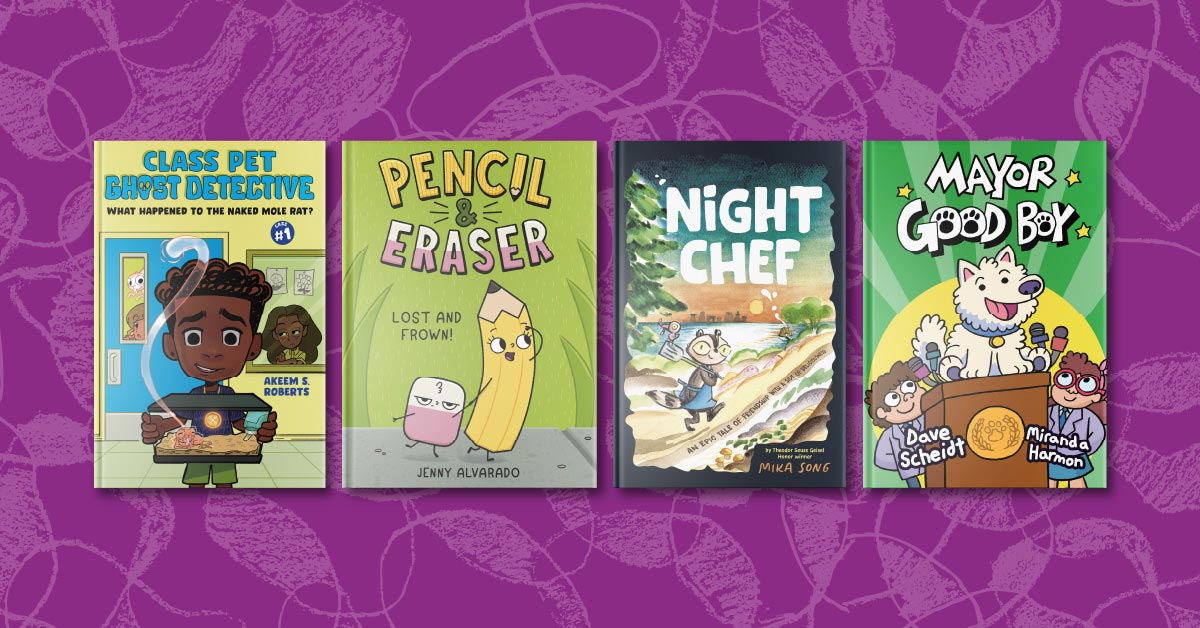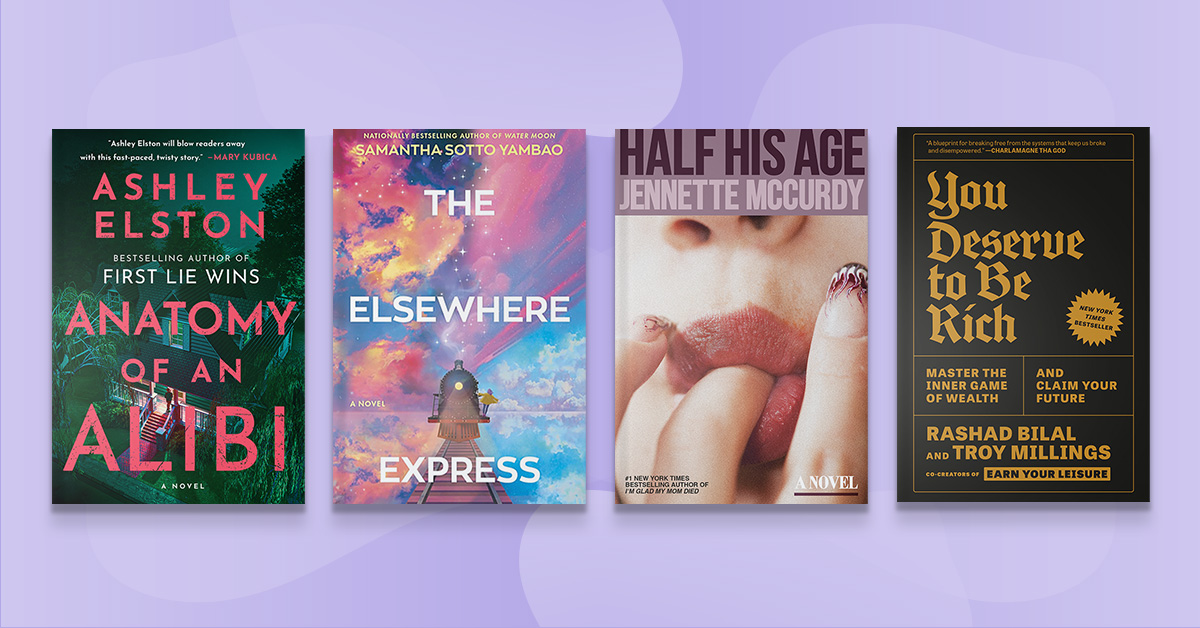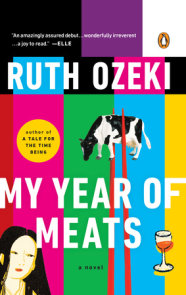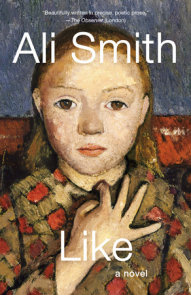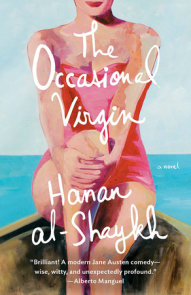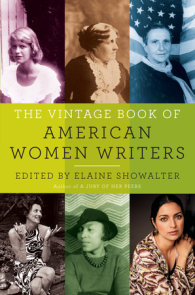READERS GUIDE
Questions and Topics for Discussion
INTRODUCTION
Marking a second dazzling achievement from acclaimed, award-winning novelist Ruth Ozeki, All Over Creation brings refreshingly original characters and circumstances to the literature of Americana. The novel’s backdrop, the rural town of Liberty Falls, Idaho, holds powerful, often painful memories for estranged childhood friends Yumi Fuller and Cassie Unger. But Yumi (pronounced “you-me,” though most everyone says it incorrectly) left Liberty Falls as a teenage runaway while Cassie stayed behind and eventually took on the responsibility of caring for Yumi’s aging parents, Lloyd and Momoko. But when Lloyd’s fragile health and Momoko’s Alzheimer’s Disease becomes too much to handle, Cassie tracks Yumi down and, after an absence of more than twenty years, Yumi finds herself on a reluctant pilgrimage back home. There, she finds she must confront her past in order to disentangle the misunderstandings and hurt feelings harbored by both her parents and Cassie. But then Elliot Rhodes, Yumi’s former high school teacher and lover, unexpectedly turns up in town, threatening the fragile peace between Yumi, her family, and her friend.
Successful potato growers working some of the nation’s most prized farmland, the Fullers raised their only child tenderly, though rigidly, and were devastated when she left under the shadow of scandal. Meanwhile, Yumi immersed herself in a liberating new life on the West Coast and in Hawaii, first as a free-spirited bohemian and later as a semi-responsible realtor, literature professor, and single mother of three.
Into this prodigal daughter’s tale, Ozeki introduces contemporary issues of genetic modification by way of a lively eco-activist group known as The Seeds of Resistance who have heard of the Fullers’ sustainable farming methods and traveled across country to meet them. While Yumi meditates on the fallout from her rebellious adolescence, The Seeds set up camp in Liberty Falls to publicize the dangers of genetically engineered potatoes, dubbing Lloyd their guru. The Seeds have little in common with their acerbic sage other than a dedication to sustainable farming, yet they supplant the ambivalent Yumi in the sickroom and happily shoulder the responsibility of nursing Lloyd back to health.
As Yumi struggles to be recognized as a responsible adult by her parents, she must also maintain authority over her three spirited and willful children—all of whom have different fathers. And, ultimately, one of Yumi’s most unnerving moments is confronting the great “what-if” embodied by Cassie, who has nurtured a stable marriage and lived within the confines of her family’s acreage her whole life. Yet, in the novel’s poignant parallel storyline, Cassie’s desperate longing for motherhood remains unsatisfied, while children have come almost too easily to Yumi. Once best friends, they now find mutual resentment and envy creeping in to completely destroy the place they once held in the other’s heart.
Exploring the unusual yet universally resonant story of one woman’s homecoming, All Over Creation speaks to the necessary dilemmas of reconciling past actions to present truths as Yumi finally confronts the man who loves her and who she’s spent her life avoiding—her father.
ABOUT RUTH OZEKI
Ruth Ozeki, author of the award-winning novel My Year of Meats, worked for more than a decade in television and film. Her documentary and dramatic films have been shown on PBS, at the Sundance Film Festival, and at colleges and universities across the country.
A CONVERSATION WITH RUTH OZEKI
Your youth was spent in New Haven, Connecticut, a locale that seems to have little in common with Yumi’s hometown. How did you manage to evoke such precise images of Idaho farm life? What did your upbringing have in common with Yumi’s?
Well, not much. When I was growing up, in a newly developed suburb east of New Haven, trees were trees. They didn’t really have names, or none that we, as children, knew. New Haven’s nickname was Elm City, which, after the outset of Dutch Elm disease, was kind of sad and ironic. I guess I could identify elm trees because they were the dead ones.
Our house was in a development of identical ranch-style houses, built in the early 1950s for GIs returning from war. The developers came in with bulldozers, scraped up all the rich topsoil and hauled it away to sell, then they built the houses on the sand. When I was a child, it was a barren, lunar place. People scattered lawn seed that washed away when they watered, stuck cuttings in the ground and watched them die, cursed the developers as they bought back the precious top soil, bag by bag. My father wanted dogwoods, but only a hardy species of thorny locust survived. My mother had the choice of spending money on landscaping the property or buying a raccoon coat. She chose the coat, which at the time was fine with me. You can’t cuddle up to a hedge.
How did I write Yumi’s Idaho landscape? I visited and fell in love with it. I visited farms. I talked to people. And then, my father came from a farming family in the Midwest, so I’d grown up with his stories, steeped in nostalgia, of how things used to be, back in the old days, when tomatoes tasted like tomatoes, and eggshells were sturdy and didn’t crumple in your hand, and bread was baked fresh every day.
You’ve said that in your last novel, My Year of Meats, cattle became a metaphor for a variety of concepts, including exploited women and the sexual side of human existence. In All Over Creation, to what metaphors did farming lend itself? What made the mundane potato such an ideal choice when you selected it for the Fullers’ crop?
Well, farming could be a metaphor for the entire scope of human endeavor on this planet, so there’s a lot to chose from. The aspect that interested me in particular was farming as an exercise of human will over the natural environment—the ways in which, particularly in this modern age, we try to play God and control nature’s every move, and the myriad ways nature outfoxes us. Farming has changed so drastically over the past hundred or so years. In the past, farmers worked in cooperation with conditions that nature set, but with the advent of large-scale chemically-based factory farming operations, that relationship of cooperation started to erode, replaced by a dangerous kind of hubris.
And why potatoes? Because they are funny. They are round and jolly, and yet are a staple crop that has coevolved with human beings. Potatoes have a rich and fascinating history, and it is to the lowly tuber that we owe a great deal of our success as a species. And because potatoes represent the American diet and seemed like an inevitable choice after My Year of Meats. But mostly because spuds are cuter than rice or wheat or even ears of corn.
Your previous novel also revolved around the historic misuse of the synthetic hormone DES. All Over Creation raises questions about the issue of genetically engineered produce. Is your new novel an extension of its predecessor? Did you modify your approach to such issues when you began to write the new manuscript?
Well, an extension in the sense that I got interested in the relationship between food production and public relations during the writing of My Year of Meats, and wanted to continue the inquiry, but I think my approach is quite different in the new book. Meats was a “quest” novel, and Jane was a heroine on a mission. Creation does not have a morally unambiguous central character, and in this world, everyone is flawed. As you point out, the DES issue was largely historic, but the issues at the heart of Creation are far more complex and still evolving, so it would be reductive to propose simple answers or solutions.
All Over Creation is told through effective shifts in time and point of view. Did this make the storyline more challenging for you to manage, or did this device provide freedom? Would such shifts have been more difficult to achieve in filmmaking, your other medium?
The simple answer: Yes.
I’m tempted to leave it at that because when I think back to the juggling I’ve done during the past four years, trying to get these characters and their histories to mesh, it makes me feel like an idiot. Talk about hubris! I made the classic second novelist’s mistake: I thought, “Well, gee. I’ve written a novel so I know how to do this now. The second one should be a breeze, so why not raise the bar a bit and use multiple p.o.v.’s and expanded time frames, and then cover the natural history of the potato as well? Should be easy…”
It was not.
But having said that, I’m really glad I was so naive and foolishly ambitious. I had a vision of the way the characters could mesh and intersect, and eventually they did, and I even managed to keep in some of the natural history. My editor, Carole DeSanti, is a very wise woman. I got a bit carried away with this subject, and she reined me in before I sank my story under the sheer weight of my enthusiasm. She pointed out that my readers probably wouldn’t mind not knowing everything about tuber blights and famines and cloning and Conquistadors and soil chemistry, and when I questioned her, she gently reminded me that I wasn’t writing Moby-Dick, and anyway Herman Melville would never have gotten a book contract in this day and age of publishing. This is why writers need smart editors who care.
Performance protests such as those launched by The Seeds of Resistance are common in some parts of America, particularly in the Midwest. Did you have any first-hand experience with their brand of information dissemination?
I don’t know if they are common or not. Maybe not as common as they should be. I haven’t had a lot of first-hand experience with direct action protests, but I know a lot of people who regularly do. Everyone has his or her own style of social participation, and mine is primarily through my writing and speaking.
Were you purposely ambiguous about the perpetrator of the tragic event near the end of the novel? Was it important to you to propose the possibility that the destruction was accidental?
Good question. Yes.
Are you a gardener? What did your characters teach you about “growing” a novel?
I’m not a gardener, but my husband is. He is an obsessed gardener. He gardens night and day. He gardens the way I write. He’ll grow anything, but he has a special fondness for cacti, which he grows from seed. Do you know how long that takes? And not only that, he collects his own seeds, which means he has to hand-pollinate each of the cactus flowers first. He collects the pollen by making miniature dunce caps that fit over the top of a blossom. When the pollen collects like dust on the sides of the cap, he takes a tiny sable paintbrush and transfers it to another flower and waits for it to produce seed. These cactus seeds are tiny and very slow to germinate. Once he plants them, he waits. And waits —you can imagine the suspense—until eventually a tiny green nub pokes through the sand. He has, in his collection, ten-year-old cacti the size of a worn-down pencil eraser. Ten years. Compared to that, novels are quick and easy.
But in the same way that a gardener learns from his plants, a writer has to let her characters teach her. But it’s not easy. Here’s another example of hubris: You start a novel feeling like God, populating your imaginary world, and you feel enormously powerful and in control, but years later, as the novel comes to a close, you realize that you have mysteriously become enslaved to your characters and their whims and their ways. It’s hopeless, really, and the only answer is to forgo control and let the characters lead you.
How did you balance the novel’s humor with its weighty issues? How did you keep the polemical aspect of the plot from dominating the novel’s tone?
I guess I don’t see the humor as being separate or apart from the weighty issues. Weighty issues are quite funny, in addition to being quite serious, and thank goodness for that! Were that not the case, how could one bear to tackle them?
I don’t think of my novels as didactic or polemical. I certainly don’t write them in order to “teach” or to “convert.” That’s totally not the point. I write in order to initiate an inquiry, primarily my own, and if the reader’s spirit of inquiry is sparked by my puzzles and enthusiasms, well, that great, but it’s almost a by-product. However, having said that, since I do publish, I have to cop to the fact that I hope readers are sparked, and that good things will come from our efforts.
Many of your characters are at odds with one another. Were you able to divide your loyalties equally among them, particularly when it came to Yumi and Cassie?
When I write a character, I inhabit that character. When I was a little girl, about six or seven, I remember realizing, with a deep sense of shock, that I was forever trapped inside my skin, and I would never be able to experience the world from inside another’s. This fundamental human limitation struck me as profoundly tragic and unsettling. What if my brief six or seven years of experience were entirely subjective, and my cognizance of the world were mine alone? What if what I saw as green, you saw as red? How would I ever know otherwise? Suddenly the world felt like such a lonesome place, and I remember wishing that I could slip magically inside someone else’s body and look out their eyes, for a minute or even a single second. If I could do that, I would know. I’m sure I started to write in order to combat this terrible loneliness.
Now…what was the question? Oh, right. Because I do inhabit my characters to such an extent, I’ve never had a problem with divided loyalties. My main problem is that certain characters, like certain people I know, are very pushy and try to take over. Generally it’s the character that most resembles me, and the trick is to make her shut up.
Yumi’s name is ideal for her character. What inspired you to call her Yumi?
You. Me. And the inevitable mispronunciation—Yummy—which allowed me to pay tribute to one of the finest songs of the Seventies.
What’s next from you—another novel, or a film?
I wonder if I’ll ever make another film. It’s so darn hard. I hate to be lazy, but it’s easier to write, and a lot cheaper. However, having said that, I’m tempted to make another film about my mother. My husband and I take care of her. She has Alzheimer’s now, and while that is very sad, she also happens to be very funny. There. You see? Dementia is certainly a weighty issue, but it has its humorous sides, too, mostly having to do with the way my mother constantly trips me up.
But realistically, I think I’ll write another novel. I have a couple of story ideas and a passel of characters inside my brain, fighting like cats in a sack. It’ll be interesting to see who emerges first.
DISCUSSION QUESTIONS
